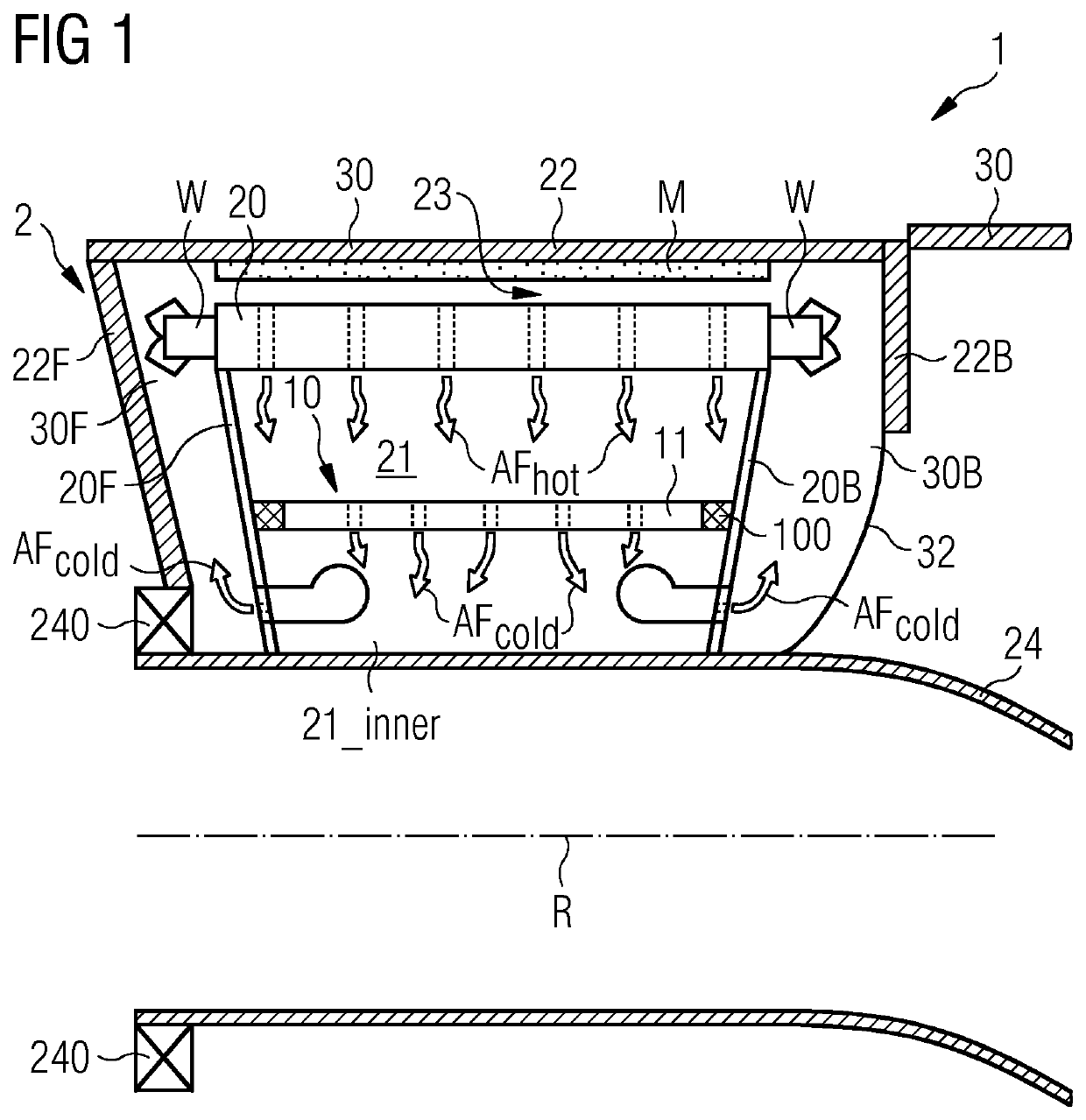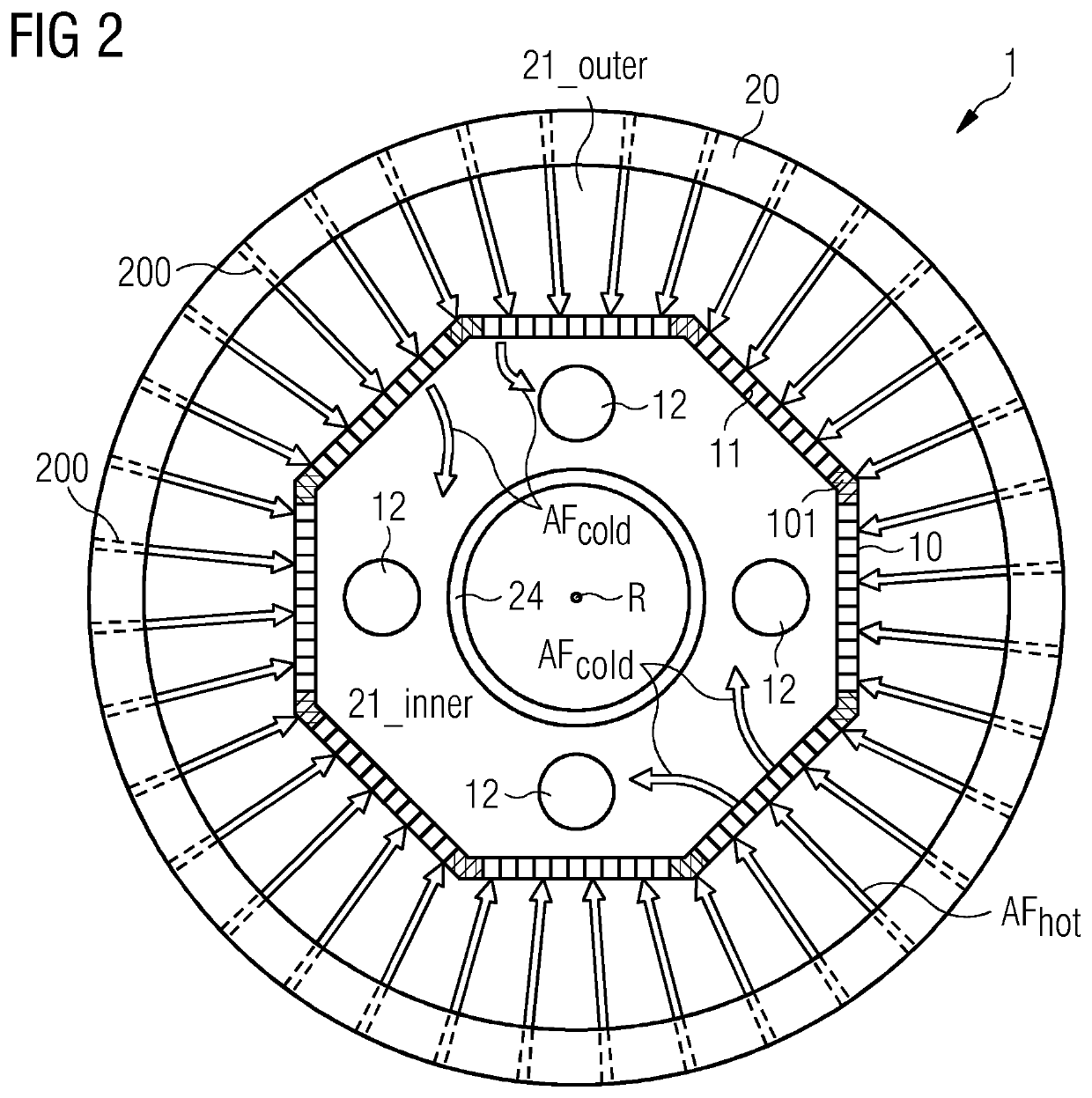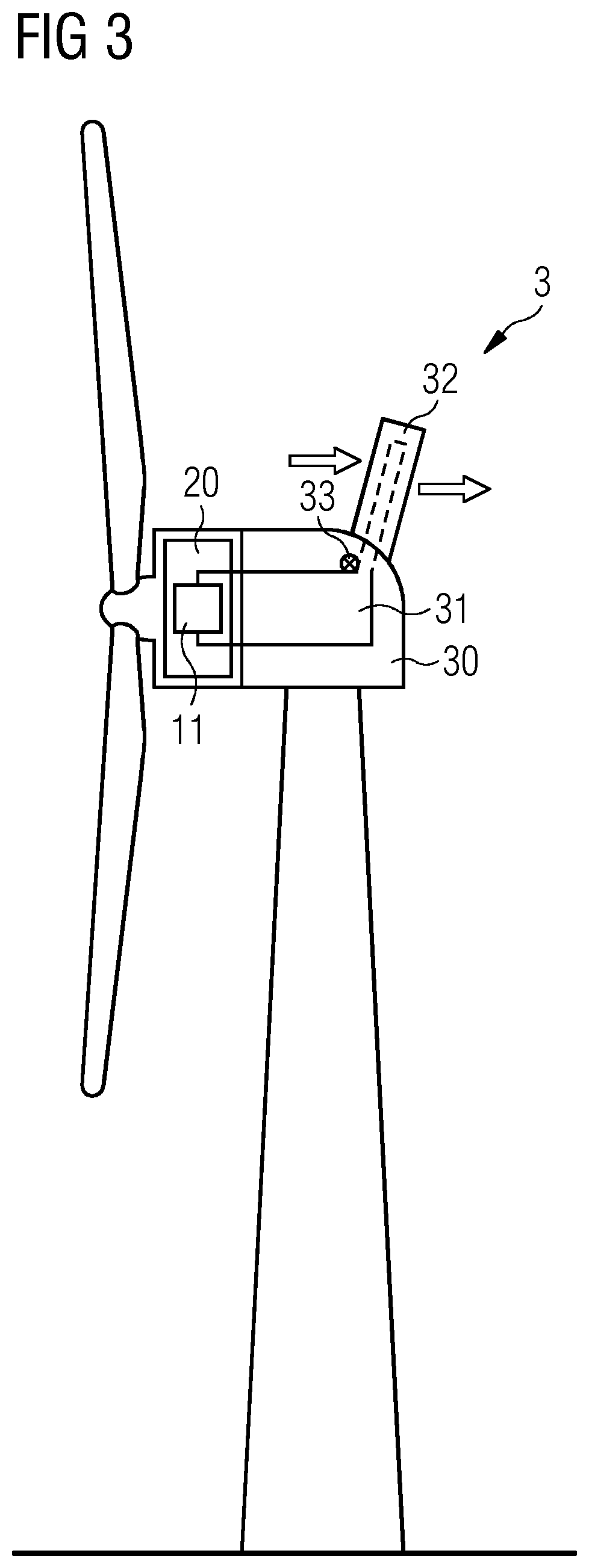Cooling arrangement
a cooling arrangement and generator technology, applied in the direction of machines/engines, mechanical energy handling, mechanical equipment, etc., can solve the problems of windings becoming very hot, ensuing heat needs to be removed from the generator, and greater thermal losses
- Summary
- Abstract
- Description
- Claims
- Application Information
AI Technical Summary
Benefits of technology
Problems solved by technology
Method used
Image
Examples
Embodiment Construction
[0030]FIG. 1 shows a generator 2 installed in a wind turbine. The generator 2 is a direct-drive generator 2 with an outer rotor 22 arranged to enclose an inner stator 20. The rotor 22 is supported by a rotor front plate 22F and a main bearing 240. A canopy 30 protects the generator 2 and other components from the exterior environment. A labyrinth seal between the stationary canopy 30 and a rotating brake disc 22B can keep moisture and air-borne particles outside.
[0031]Magnets M of the rotor 22 face windings W of the stator 20 across a narrow air-gap 23. End plates 20F, 20B mount the stator 20 about a main shaft 24. For clarity, the diagram only shows the upper half of the generator 2, which is installed to rotate about an axis R. An interior cavity 21 is bounded by the stator end plates 20F, 20B, the inside surface of the stator 20, and the main shaft 24. The cooling arrangement 1 uses a partition 10 to separate the stator interior cavity 21 into an outer annular region 21_outer and...
PUM
 Login to View More
Login to View More Abstract
Description
Claims
Application Information
 Login to View More
Login to View More - R&D
- Intellectual Property
- Life Sciences
- Materials
- Tech Scout
- Unparalleled Data Quality
- Higher Quality Content
- 60% Fewer Hallucinations
Browse by: Latest US Patents, China's latest patents, Technical Efficacy Thesaurus, Application Domain, Technology Topic, Popular Technical Reports.
© 2025 PatSnap. All rights reserved.Legal|Privacy policy|Modern Slavery Act Transparency Statement|Sitemap|About US| Contact US: help@patsnap.com



